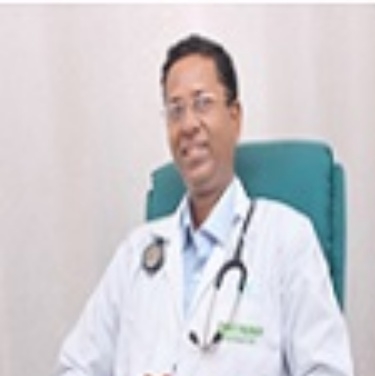 100%
100%
DR ASHMEET CHOUDHARY
Gastroenterologist
- Fees: INR 800
-
Monday 12:30 PM - 2:30 PM, 5:00 PM - 7:30 PM
(See all timing)Monday 12:30 PM - 2:30 PM, 5:00 PM - 7:30 PM,
Tuesday 12:30 PM - 2:30 PM, 5:00 PM - 7:30 PM,
Wednesday 12:30 PM - 2:30 PM, 5:00 PM - 7:30 PM,
Thursday 12:30 PM - 2:30 PM, 5:00 PM - 7:30 PM,
Friday 12:30 PM - 2:30 PM, 5:00 PM - 7:30 PM,
Saturday 5:00 PM - 7:30 PM, 12:30 PM - 2:30 PM
Introduction
Dr. Ashmeet Choudhary is one of the best Gastroenerologist in Apollo Hospitals, Indore. Dr. Ashmeet Choudhary is working as full time Gastroenerologist from November 2003 and have been involved from the inception of department. The work involves OPD, IPD and also Endoscopies. Dr. Ashmeet Choudhary usually perform about 120 -150 Endoscopies /month. Dr. Ashmeet Choudhary have done about 10,000 Ugi Endoscopies and about 2000 colonoscopies and 200 ERCPs
Hospital Associations
Apollo Hospitals, Indore
Services/Interest
- Gastroscopy
- Liver Disease Treatment
- Colonoscopy
Experience
Dr. Ashmeet Choudhary has an experience of 18 years in the field of Gastroenerology.
Professional Memberships
Medical Council of India (MCI)
Education
MBBS (MGM Institute of Health Science, Bombay), MS (General Surgery - Allahabad university)
I Speak
English, Hindi
Feedback For Dr Ashmeet Choudhary
Write FeedbackRajeshwari Pawar
(26 Jun 2023)Apollo Hospitals Indore Timing
Monday - Friday
12:30 PM - 2:30 PM, 5:00 PM - 7:30 PM
Saturday
5:00 PM - 7:30 PM, 12:30 PM - 2:30 PM
Who is a gastroenterologist?
Gastroenterologists are the physicians who have extensive training in the diagnosis and treatment of conditions that affect the large intestine, small intestine, stomach, esophagus, and biliary system which is made up of liver, pancreas, gallbladder, bile ducts.
What does a gastroenterologist do?
Gastroenterologist primarily assesses the structure of the digestive tract and are experts in diseases of the digestive tract.
They specialize in the evaluation, diagnosis, and treatment of the following symptoms and conditions: Abdominal pain, bleeding in the digestive tract, colorectal cancer, stomach cancer, pancreatic cancer, liver cancer, constipation and diarrhea, difficulty swallowing, polyps, diverticular disease, Crohn's disease, gallbladder disease, irritable bowel syndrome (IBS), colitis, heartburn, GERD (gastroesophageal reflux disease), hemorrhoids, stomach upset, nausea, vomiting, and ulcers.
When should you see a gastroenterologist?
You should see a gastroenterologist if you're experiencing any of the following symptoms:
- Abdominal pain or bloating
- Bowel movement urges that are hard to control
- Changes in bowel habits
- Dark urine
- Diarrhea
- Esophageal pain
- Excessive gas or belching
- Heartburn (acid reflux)
- Leakage/underwear stains
- Lethargy
- Loss of appetite or weight
- Pale-colored stools
- Rectal bleeding
- Vomiting
What diseases do Gastroenterologists treat?
A gastroenterologist treats any condition affecting the gut, such as:
- Oesophagitis, gastritis, peptic ulcer disease, and duodenal ulceration.
- Inflammatory bowel disease like Crohn’s disease.
- Malignancy (cancer) and benign (non-cancerous) tumors of the gut.
- Hepatitis
- Hiatal hernia
- Irritable bowel syndrome (IBS)
- Liver disease
What procedures do gastroenterologists perform?
Endoscopic ultrasounds to examine the upper and lower tract and other internal organs. Colonoscopies to detect colon cancer. Cholangiopancreatography to identify tumors, gallstones, or scar tissue in the bile duct area. Sigmoidoscopies to evaluate blood loss in the bowel. Liver biopsies to assess fibrosis and inflammation. Capsule endoscopies to examine the small intestine. Double balloon enteroscopy to examine the small intestine.
What happens in your first appointment with a gastroenterologist?
Your gastroenterologist will begin by asking you about the symptoms you have been getting, the duration of the symptoms, any previous tests, and treatments, risk factors, other medical problems, medications, allergies, and social history and will conduct an examination and provide a list of tests.
